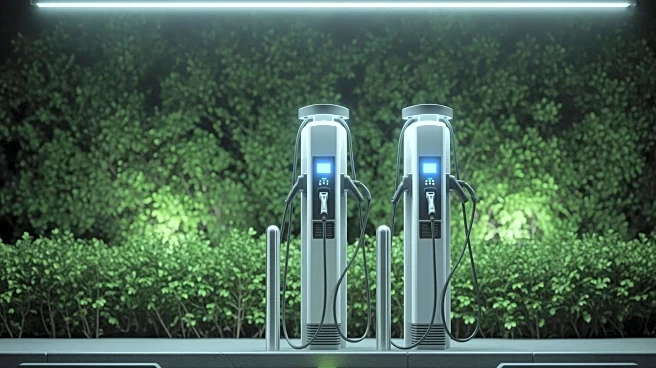What's Happening?
New Jersey continues to offer state-level incentives for electric vehicle (EV) purchases, despite the reduction of federal EV incentives. Residents can receive a $1,500 rebate on a new EV or lease, with
an additional $2,500 available for those who qualify based on income, totaling up to $4,000 in incentives. Additionally, there is a $250 incentive for installing a Level 2 charger. These incentives make EVs more affordable, with models like the Chevy Equinox EV and Nissan Leaf potentially costing under $30,000 after rebates. The state aims to promote cleaner transportation options to combat air pollution and climate change impacts.
Why It's Important?
The continuation of New Jersey's EV incentives is significant as it supports the transition to cleaner energy vehicles, which is crucial for reducing greenhouse gas emissions and improving air quality. This move is particularly important as federal incentives have diminished, potentially impacting EV sales. By maintaining these incentives, New Jersey not only encourages the adoption of EVs but also addresses public health concerns related to air pollution. The incentives also make EVs more financially accessible, potentially increasing their market share and supporting the state's environmental goals.
What's Next?
As New Jersey continues to offer these incentives, it is likely to see an increase in EV adoption, contributing to the state's environmental and public health objectives. The state may also explore additional measures to further support clean energy initiatives, such as expanding charging infrastructure and promoting renewable energy sources. Stakeholders, including policymakers and environmental groups, may advocate for similar incentives in other states to bolster national efforts in reducing carbon emissions and promoting sustainable transportation.
Beyond the Headlines
The incentives not only have environmental benefits but also economic implications. By encouraging EV purchases, New Jersey supports the growth of the EV market, potentially attracting related industries and creating jobs. Additionally, the reduction in fuel and maintenance costs for EV owners can lead to long-term savings, further incentivizing the shift from traditional vehicles. The state's approach could serve as a model for other regions looking to balance economic growth with environmental responsibility.









